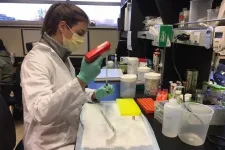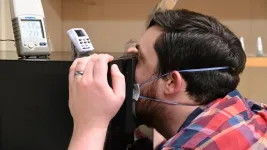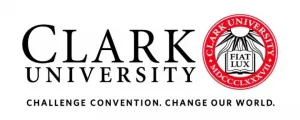To ensure an effective global immunisation strategy against COVID-19, vaccines need to be produced at scale, priced affordably, and allocated globally so that they are available where needed, and successfully rolled out. Review of evidence includes a comparison of 26 leading vaccines on their potential contribution to achieving global vaccine immunity, and a new survey of COVID-19 vaccine confidence in 32 countries. Having new COVID-19 vaccines will mean little if people around the world are unable to get vaccinated in a timely manner. Vaccines have to be affordable and available to all countries, and governments must have the administrative and political capacities to deliver them locally to ensure an effective global immunisation strategy against COVID-19, say the authors of a Health Policy piece published in The Lancet.
Global distribution of safe vaccines is imperative for spurring economic recovery, protecting lives, achieving herd immunity, and minimising the risk of new variants emerging against which existing vaccines are less effective.
The seven authors, who are leading experts in vaccines, health policy, and infectious disease, discuss potential challenges to production, affordability, allocation, and roll-out of an effective global vaccination strategy against COVID-19, and score the 26 leading vaccines using a traffic light system to indicate their potential contribution to achieving global vaccine immunity (figure 2).
Dr Olivier Wouters, lead author from the London School of Economics and Political Science, UK, says: "Several manufacturers have successfully developed COVID-19 vaccines in under 12 months, an extraordinary achievement. But the stark reality is that the world now needs more doses of COVID-19 vaccines than any other vaccine in history in order to immunise enough people to achieve global vaccine immunity. Unless vaccines are distributed more equitably, it could be years before the coronavirus is brought under control at a global level. The questions now are when these vaccines will become available, and at what price." [1]
Overcoming production challenges Scaling up vaccine production to meet global demand is a monumental challenge. Most countries still lack the domestic capacity to rapidly produce COVID-19 vaccines on their own, and the sheer number of vaccines that are needed places huge pressure on global supply chains for materials like glass vials and syringes.
With vaccine manufacturing capabilities limited to a handful of global regions and by the relationships agreed between specific vaccine developers and manufacturers, the authors say that developers should share knowledge, technology, and data with a wider group of manufacturers to produce more COVID-19 vaccines. They note that some vaccine developers are collaborating with manufacturers in other regions [2], but the terms of these agreements are not clear about who decides where the vaccine manufactured in that region will be supplied to (ie, it may be shipped to another location, rather than being used in the country where it was manufactured).
The authors also point out that there have been several initiatives to facilitate the scale-up of global production. For instance, the WHO has called on member states and manufacturers to commit to sharing knowledge, intellectual property, and data on COVID-19 vaccines, but responses to this initiative have been limited.
With large amounts of public funding being invested into COVID-19 vaccines, the authors argue that funders should encourage vaccine developers to share their expertise to help expand global production. Governments and non-profit groups have committed unprecedented sums of money to the development of COVID-19 vaccines and the infrastructure to produce them at scale--with the top five vaccine manufacturers receiving between $957 million and $2.1 billion.
Achieving timely, universal access Scarce supply, coupled with advanced orders by the world's richest nations for billions of vaccine doses--enough to protect some populations several times over--creates challenges to achieving timely, universal access. COVAX (the global initiative to ensure access to COVID-19 vaccines for all countries) was set up to avoid this, but vaccine nationalism could leave COVAX with limited supplies.
"Securing large quantities of vaccines in this way amounts to countries placing widespread vaccination of their own populations ahead of the vaccination of health-care workers and high-risk populations in poorer countries", says co-author Professor Mark Jit from the London School of Hygiene & Tropical Medicine, UK. "Based on known deals, governments in high-income countries representing 16% of the global population have secured at least 70% of doses available in 2021 from five leading vaccine candidates." [1]
COVAX says it will need a further US$6.8 billion in funding to fulfil its aim to secure 2 billion doses by the end of 2021, including 1 billion vaccine doses for 92 LMICs. "With additional funding, COVAX could compete better in the global scramble for vaccines", explains Dr Wouters. "Vaccines developed by Chinese, Indian, and Russian manufacturers may also offer a lifeline for the lowest-income nations if they show good results in phase 3 trials, allowing them to procure abundant doses of vaccines that have not yet been authorised in most high-income countries. Once authorised by WHO, these vaccines could also potentially contribute to the COVAX portfolio." [1]
A COVID-19 vaccine should be affordable to everyone Affordability also remains a major concern, with some vaccine manufacturers setting prices for COVID-19 vaccines that are among the highest ever charged for a vaccine (figure 3). Without price controls, low-income countries are unlikely to be able to afford or access enough vaccines to protect their populations--with the lowest prices developers have offered to any country or purchasing bloc ranging from US$5 to US$62 per course (see the table in the Article).
"The extensive involvement of public funders in COVID-19 vaccine development provides an opportunity to make these vaccines globally available and affordable. Governments can insist that, as a condition of getting public funding, companies engage in sufficient licensing to enable widespread global production, and they must set affordable prices", says co-author Professor Kenneth Shadlen from the London School of Economics and Political Science, UK. [1]
The need for varied vaccine options Many LMICs also face substantial logistical and administrative barriers to delivering vaccination programmes, including infrastructure, vaccination registries, and cold storage. The review highlights important trade-offs between the leading 26 COVID-19 vaccines that can help governments decide which vaccines best suit their needs (figure 2). For instance, while many multi-dose, ultra-cold storage vaccines are highly efficacious, resource-constrained countries might be better to use single-dose vaccines which only have to be kept refrigerated, and are in late stages of clinical development.
The distinct characteristics of leading COVID-19 vaccines generate trade-offs, which mean that a range of vaccines will be needed to bring the global pandemic under control.
Inspiring public confidence and trust to optimise uptake Successful roll-out can also be hampered by vaccination hesitancy. New findings from a 32-country survey of potential acceptance of COVID-19 vaccines (involving almost 27,000 adults), conducted by the authors between October 2020 and December 2020, suggest that Vietnam (98%), India, China (both 91%), Denmark and South Korea (both 87%) had the highest proportion of respondents who said they would "definitely" or "probably" get vaccinated when a COVID-19 vaccine becomes available; while Serbia (38%), Croatia (41%), France, Lebanon (both 44%), and Paraguay (51%) reported the highest proportion of people saying they would "probably not" or "definitely not" be vaccinated (figure 4) [3].
"To overcome challenges in vaccine hesitancy and ensure that vaccines are administered to as many people as possible, governments need to do much better at building public trust in the safety of vaccines and to combat misinformation and rumours around COVID-19", says Professor Heidi Larson, co-author from the London School of Hygiene & Tropical Medicine, UK. "This will require increasing vaccination knowledge and awareness, promoting community engagement, and making vaccines available in convenient and accessible locations. Vaccine manufacturers should aim for maximum transparency and scrutiny of their clinical trial data, and post-marketing safety surveillance with compensation schemes for severe adverse events in resource poor countries with poor consumer protection. These factors are vital to build confidence during vaccine roll-out." [1]
INFORMATION:
NOTES TO EDITORS
The study received no funding. It was conducted by researchers from London School of Economics and Political Science, UK; London School of Hygiene & Tropical Medicine, UK; University of Oxford, UK; University of Washington, USA; Ministry of Public Health, Thailand; and the National University of Singapore, Singapore. A full declaration of interests for all authors is provided in the paper.
[1] Quotes direct from authors and cannot be found in the text of the Article.
[2] Some of the lead developers of COVID-19 vaccines have collaboration agreements with manufacturers in middle-income countries--for example, AstraZeneca with the Serum Institute (India), Fiocruz (Brazil), mAbxience Buenos Aires (Argentina), and Siam Bioscience (Thailand); Johnson & Johnson with Aspen (South Africa); and Novavax with the Serum Institute (India)--although the terms of these partnerships, including the extent to which the licensed manufacturers can negotiate their own supply arrangements with countries, are unclear.
[3] Samples were random and nationally representative of the adult population in 30 of 32 countries. In Ecuador and Vietnam interviews were only done in the main cities. Survey weight were applied to compensate for over- or under-sampling by sex, age, and sub-national region
The labels have been added to this press release as part of a project run by the Academy of Medical Sciences seeking to improve the communication of evidence. For more information, please see: http://www.sciencemediacentre.org/wp-content/uploads/2018/01/AMS-press-release-labelling-system-GUIDANCE.pdf if you have any questions or feedback, please contact The Lancet press office pressoffice@lancet.com



